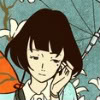Do Different Worldviews Shape Cultural Entertainment-eg. Anime. If so,to what Extent?
32 posts •
Page 1 of 2 •
- 1
- 2
Do Different Worldviews Shape Cultural Entertainment-eg. Anime. If so,to what Extent?
I've noticed that some people don't watch anime because they see them as all having sad or depressing endings. While this is obviously a generalisation and an exaggeration, there is some truth to the comment.
Let me first set the background.
I live in Australia. Australia has strong Judeo-Christian values (even if they seem to be under attack all the time, but let's not go there). What I know of America, is that your country also have strong Judeo-Christian values. Whether people take on those beliefs and own them is another matter but they still lay the foundation for our Western philosophy. Japan on the otherhand was largely Shinto/Buddhist, but is now largely an atheistic country. Do you think that these different philopsophies have any bearing on the entertainment in these countries? I think so.
Let's take anime for one. It's reflective of anything in life. Much of it is crap, some of it is good and some of it, great. Some anime is inappropriate, some of it is stupid and some of it funny. But much of anime is introspective. It juggles entertainment with the big questions in life - the search for identity, purpose in life and even tough issues in great detail (This is nothing new, Western culture does this too but we do it to a much lesser degree and often with a more shallow result). There are numerous examples of nihlistic or at best, sombre anime. Do you think Shinto/Buddhist beliefs still play into the modern Japanese psyche? (as in, is there a blending of those beliefs and atheism that results in this phenomena?)
Do you believe our Judeo-Christian foundations allow for more hope in our stories, but that (for many) there's less of a desire to explore issues deeply because we have bigger budgets? Do you think, that on the inverse, Shinto/Buddhist/atheistic values are explored to the endth degree, because the creators are still searching for answers to their identity and purpose in life etc? And yet, as a result, there's little sign of hope in their stories. It's just something I've noticed and I wondered if anyone knew if there were any reasons for this happening.
The long and short of it is this: Do our different worldviews shape our cultural entertainment - in this case anime? And. What are some philosophical differences between the Western world and Japan, that may lead to the differences we seen in Western entertainment and anime?
I'm sorry that I haven't shared myself all that clearly but the idea has been gestating in my mind for ages and I've been struggling to put my thoughts into written form. I hope you can understand what I'm asking. Thanks!
Let me first set the background.
I live in Australia. Australia has strong Judeo-Christian values (even if they seem to be under attack all the time, but let's not go there). What I know of America, is that your country also have strong Judeo-Christian values. Whether people take on those beliefs and own them is another matter but they still lay the foundation for our Western philosophy. Japan on the otherhand was largely Shinto/Buddhist, but is now largely an atheistic country. Do you think that these different philopsophies have any bearing on the entertainment in these countries? I think so.
Let's take anime for one. It's reflective of anything in life. Much of it is crap, some of it is good and some of it, great. Some anime is inappropriate, some of it is stupid and some of it funny. But much of anime is introspective. It juggles entertainment with the big questions in life - the search for identity, purpose in life and even tough issues in great detail (This is nothing new, Western culture does this too but we do it to a much lesser degree and often with a more shallow result). There are numerous examples of nihlistic or at best, sombre anime. Do you think Shinto/Buddhist beliefs still play into the modern Japanese psyche? (as in, is there a blending of those beliefs and atheism that results in this phenomena?)
Do you believe our Judeo-Christian foundations allow for more hope in our stories, but that (for many) there's less of a desire to explore issues deeply because we have bigger budgets? Do you think, that on the inverse, Shinto/Buddhist/atheistic values are explored to the endth degree, because the creators are still searching for answers to their identity and purpose in life etc? And yet, as a result, there's little sign of hope in their stories. It's just something I've noticed and I wondered if anyone knew if there were any reasons for this happening.
The long and short of it is this: Do our different worldviews shape our cultural entertainment - in this case anime? And. What are some philosophical differences between the Western world and Japan, that may lead to the differences we seen in Western entertainment and anime?
I'm sorry that I haven't shared myself all that clearly but the idea has been gestating in my mind for ages and I've been struggling to put my thoughts into written form. I hope you can understand what I'm asking. Thanks!
-

Warrior 4 Jesus - Posts: 4844
- Joined: Tue Sep 07, 2004 10:52 pm
- Location: The driest continent that isn't Antarctica.
I think it's probably a mixture of both.
I'm not well-versed in buddism/shinto beliefs or anything, but since our Judeo-Christian offers more hope than some world views, I'd say you are spot on.
On the other hand, not all of our writers and directors are Christian, so there is sometimes a sense of hopelessness in our own work, but I think also Americans, and maybe other western cultures just want a more "happy, if not shallow ending..."
From a personal standpoint, I looked at these shows and I think. "Wow, how hopeless...it's sad! That these characters are still searching for meaning in their lives..." When as a Christian, I know my meaning, my purpose. I may not always live up to it like I want and know I should, but still I have a hope, I have faith...and stuff.
So yeah, interesting thoughts, W4J!
I'm not well-versed in buddism/shinto beliefs or anything, but since our Judeo-Christian offers more hope than some world views, I'd say you are spot on.
On the other hand, not all of our writers and directors are Christian, so there is sometimes a sense of hopelessness in our own work, but I think also Americans, and maybe other western cultures just want a more "happy, if not shallow ending..."
From a personal standpoint, I looked at these shows and I think. "Wow, how hopeless...it's sad! That these characters are still searching for meaning in their lives..." When as a Christian, I know my meaning, my purpose. I may not always live up to it like I want and know I should, but still I have a hope, I have faith...and stuff.
So yeah, interesting thoughts, W4J!
-

ChristianKitsune - Posts: 5420
- Joined: Mon Mar 14, 2005 12:00 pm
- Location: In my sketchbook of wonderment and puffy pink clouds! *\^o^/*
Great thoughts. I think the worldview of any given culture is central in defining its entertainment.
You've pointed out, and rightly so, that much anime has darker themes or undertones, but it would probably be perceived differently by someone outside of a Judeo-Christian culture. A person from another culture might find hope and meaning, even in the most unlikely story lines. Although, I'm not sure that we have the perspective to make a sweeping generalization about any given culture. Speaking personally, I know I can relate to darker themes in entertainment - probably more often than what would be considered a hope-filled, or inspiring story.
Stories with a happy endings, or hopeful themes, seem to be somewhat predictable, and too often, trite. In part, I think its because we have such a limited view of goodness and hope. Many approaches that have attempted to portray these qualities fail to grasp their mercurial and dynamic nature. Collectively, we tend to see goodness as a fixed thing, which can make for a pretty boring story, or at least, overly simple.
I'm not sure I would say that being in a Judeo-Christian culture lends itself to more hope-filled entertainment. Postmodernism has really changed the game in that arena. The combination of Judeo-Christian values and postmodernism seems to lend itself to story lines that break away from, or redefine the "old ways".
But on an even more basic level than that, entertainment has taken huge steps away from the risk of expressing any worldview too strongly in hopes of appealing to the widest audience possible. You can see this in the many examples of high concept films that have been released in the past few decades.
Another question that comes to mind: Does entertainment have an effect on worldview? If so, how and to what extent?
You've pointed out, and rightly so, that much anime has darker themes or undertones, but it would probably be perceived differently by someone outside of a Judeo-Christian culture. A person from another culture might find hope and meaning, even in the most unlikely story lines. Although, I'm not sure that we have the perspective to make a sweeping generalization about any given culture. Speaking personally, I know I can relate to darker themes in entertainment - probably more often than what would be considered a hope-filled, or inspiring story.
Stories with a happy endings, or hopeful themes, seem to be somewhat predictable, and too often, trite. In part, I think its because we have such a limited view of goodness and hope. Many approaches that have attempted to portray these qualities fail to grasp their mercurial and dynamic nature. Collectively, we tend to see goodness as a fixed thing, which can make for a pretty boring story, or at least, overly simple.
I'm not sure I would say that being in a Judeo-Christian culture lends itself to more hope-filled entertainment. Postmodernism has really changed the game in that arena. The combination of Judeo-Christian values and postmodernism seems to lend itself to story lines that break away from, or redefine the "old ways".
But on an even more basic level than that, entertainment has taken huge steps away from the risk of expressing any worldview too strongly in hopes of appealing to the widest audience possible. You can see this in the many examples of high concept films that have been released in the past few decades.
Another question that comes to mind: Does entertainment have an effect on worldview? If so, how and to what extent?
-

Syreth - Posts: 1360
- Joined: Thu Jul 15, 2004 3:12 pm
- Location: Central Washington
Worldviews most certainly have an effect on a regions entertainment. It is not as though Japanese animators can suddenly become American, Tanzanian or Indian - independent of how much Axis Powers of Hetalia they watch.
Furthermore, they cannot remove themselves from the cultural past that is distinctly their own. Much as the Euro-Christian world most likely has a difficult time removing it's own past influence - Odin still rides from Norse mythology on a sleigh on winter solstice as we gather around the family fertility symbol of a "Christmas" tree.
Japan can't remove it's own cultural identity either. In fact, if they were to do such an act, I would not feel it extreme to declare that it would likely be equated to a national catastrophe, the very end of Japan. Without a mythological basis of some kind, the people would be left without a point of reference to aid them in realizing their own lives or deriving purpose of some kind. Furthermore, a world without any kind of myth has no real power to entertain. Thus, they are most likely to use the worldview closest to home, Buddhism/Shintoism - or rather some amalgamation of all the eastern religions. (one must realize that in the east, each of these religions came into contact with each other and have unified in one manner or another over the centuries)
At the same time. I think this is what attracts many people to Japanese anime. There is a lot of mythical power in the eastern world - which is a very attractive thing in a western world where rationalism and logic have "killed the magic". One might even go so far as to say that while we contain our own worldview, many who watch anime gain a kind of spiritual transfusion from eastern spiritual myths exemplified in these stories to make up for their own culture's collapse into spiritual death.
That is however, simply my thoughts on the matter.
Furthermore, they cannot remove themselves from the cultural past that is distinctly their own. Much as the Euro-Christian world most likely has a difficult time removing it's own past influence - Odin still rides from Norse mythology on a sleigh on winter solstice as we gather around the family fertility symbol of a "Christmas" tree.
Japan can't remove it's own cultural identity either. In fact, if they were to do such an act, I would not feel it extreme to declare that it would likely be equated to a national catastrophe, the very end of Japan. Without a mythological basis of some kind, the people would be left without a point of reference to aid them in realizing their own lives or deriving purpose of some kind. Furthermore, a world without any kind of myth has no real power to entertain. Thus, they are most likely to use the worldview closest to home, Buddhism/Shintoism - or rather some amalgamation of all the eastern religions. (one must realize that in the east, each of these religions came into contact with each other and have unified in one manner or another over the centuries)
At the same time. I think this is what attracts many people to Japanese anime. There is a lot of mythical power in the eastern world - which is a very attractive thing in a western world where rationalism and logic have "killed the magic". One might even go so far as to say that while we contain our own worldview, many who watch anime gain a kind of spiritual transfusion from eastern spiritual myths exemplified in these stories to make up for their own culture's collapse into spiritual death.
That is however, simply my thoughts on the matter.
FKA Pascal
-

Dante - Posts: 1323
- Joined: Thu Mar 04, 2004 8:24 pm
- Location: Where-ever it is, it sure is hot!
Yes, but -
Religion is only one (although fairly significant) thing that affects culture. The two are not synonymous. If you're going to be examining works through the lens of another culture, you're going to need to take into account a lot more than just religion.
Religion is only one (although fairly significant) thing that affects culture. The two are not synonymous. If you're going to be examining works through the lens of another culture, you're going to need to take into account a lot more than just religion.
-

blkmage - Posts: 4529
- Joined: Mon May 03, 2004 5:40 pm
I think for entertainment in general, regardless of the form or genre, worldviews definitely shape the sort of stories we tell and share, since worldviews are pretty much the philosophical foundations of how people see reality.
-

Sammy Boy - Posts: 1410
- Joined: Wed May 25, 2005 7:04 am
- Location: Autobase, Cybertron
Just a random note - religion in Japan is more a cultural thing. The syncretic blending of Shintoism and Buddhism is simply a part of everyday life. It's cultural and strangely enough, is really loosely connected to deep beliefs is the existence of God. In fact, it's been called a "practical religion," more concerned with benefits than with worship.
Beneath the Tangles: Where Manga Meets the Maker
In the colors of Your goodness/In the scars that mark your skin/In the currency of Grace/Is where my song begins
~ "Economy of Mercy," Switchfoot
In the colors of Your goodness/In the scars that mark your skin/In the currency of Grace/Is where my song begins
~ "Economy of Mercy," Switchfoot
-

TWWK - Posts: 610
- Joined: Mon Sep 13, 2010 12:34 pm
- Location: Texas
Worldview yes, religion, not so much. Those are two different things.
I do not think that one religion is more "hopeful" than another- both (or all three, depending on how you look at it) have consequences for those who do evil, and both have consequences for those who do good.
However, there are other cultural things that would help account for some of the differences in entertainment- the Japanese treat their children with more responsibility and with more maturity than Americans do, which is why Sailor Moon is for elementary school kids there but early teens here.
And that's not the only thing that factors into entertainment. How the different cultures treat death is another- for the Japanese, death seems to be a more natural thing. The family takes part in certain rituals pertaining to death and what happens immediately after concerning the body, which brings them very close to it. Americans are very removed from death. From the time the person dies to the time they're in the casket, we don't see the small rituals that the mortician and embalmer do to prepare them for burial, and it would be seen as inappropriate for children to see.... which it isn't in Japanese culture.
I do not think that one religion is more "hopeful" than another- both (or all three, depending on how you look at it) have consequences for those who do evil, and both have consequences for those who do good.
However, there are other cultural things that would help account for some of the differences in entertainment- the Japanese treat their children with more responsibility and with more maturity than Americans do, which is why Sailor Moon is for elementary school kids there but early teens here.
And that's not the only thing that factors into entertainment. How the different cultures treat death is another- for the Japanese, death seems to be a more natural thing. The family takes part in certain rituals pertaining to death and what happens immediately after concerning the body, which brings them very close to it. Americans are very removed from death. From the time the person dies to the time they're in the casket, we don't see the small rituals that the mortician and embalmer do to prepare them for burial, and it would be seen as inappropriate for children to see.... which it isn't in Japanese culture.
-

Atria35 - Posts: 6295
- Joined: Sat Mar 20, 2010 7:30 am
ChristianKitsune, thanks for sharing your thoughts. I see where you're coming from.
Syreth, sorry, I should've mentioned that I realise different worldviews affect cultural entertainment. I myself, also prefer darker entertainment. It seems to be more honest in it's portrayl of life's troubles and the hope shines all the brighter because of it. I probably worded my post badly. I'm not as much of a simpleton as it may suggest.
Pascal, that's an excellent point. I really enjoyed your post. Lots to think about. The power of myth is a beautiful thing.
blkmage, that's true. I didn't realise I used religion as the only cultural reference for such differences between the Western world and Japan. But to be fair, I mentioned worldview and values and people don't always belief the faith behind those values.
SammyBoy, yes, and that's why it's so important for people to develop a solid worldview. It really is critical that we understand what we believe and why we believe what we do.
TWWK, yes. I may have generalised too much. Religion in Japan is more of a cultural thing but I believe it was more encompassing in the past. Yes, the beliefs are more concerned with benefits than worship. I noticed that on my mission trip to Japan, several years ago. If there are connections to the Christian God, they're extremely loose because there is nothing God's Truth that talks about finding gods and godesses in everything in nature.
Atira, I don't know why people are so quick to separate worldview and religion. They're not the same thing but they're not totally different either. Our worldviews, our philosophies of life, shape everything we do, whether we realise this or not. The Christian faith is certainly more hopeful than other religions because of one thing - God's grace. That's unique to the Christian faith. It's very true that there are cultural differences between anime demographics but I would argue that Salior Moon was made for elementary children, despite some adult content and that the American version is also for elementary children, but with the adult content removed. There's no denying that many Japanese children are probably more mature and intelligent than many Americans, Australians, British children but Sailor Moon was never for early teens. I've only ever seen young children watch it.
Thanks everyone for sharing your thoughts.
Syreth, sorry, I should've mentioned that I realise different worldviews affect cultural entertainment. I myself, also prefer darker entertainment. It seems to be more honest in it's portrayl of life's troubles and the hope shines all the brighter because of it. I probably worded my post badly. I'm not as much of a simpleton as it may suggest.

Pascal, that's an excellent point. I really enjoyed your post. Lots to think about. The power of myth is a beautiful thing.
blkmage, that's true. I didn't realise I used religion as the only cultural reference for such differences between the Western world and Japan. But to be fair, I mentioned worldview and values and people don't always belief the faith behind those values.
SammyBoy, yes, and that's why it's so important for people to develop a solid worldview. It really is critical that we understand what we believe and why we believe what we do.
TWWK, yes. I may have generalised too much. Religion in Japan is more of a cultural thing but I believe it was more encompassing in the past. Yes, the beliefs are more concerned with benefits than worship. I noticed that on my mission trip to Japan, several years ago. If there are connections to the Christian God, they're extremely loose because there is nothing God's Truth that talks about finding gods and godesses in everything in nature.
Atira, I don't know why people are so quick to separate worldview and religion. They're not the same thing but they're not totally different either. Our worldviews, our philosophies of life, shape everything we do, whether we realise this or not. The Christian faith is certainly more hopeful than other religions because of one thing - God's grace. That's unique to the Christian faith. It's very true that there are cultural differences between anime demographics but I would argue that Salior Moon was made for elementary children, despite some adult content and that the American version is also for elementary children, but with the adult content removed. There's no denying that many Japanese children are probably more mature and intelligent than many Americans, Australians, British children but Sailor Moon was never for early teens. I've only ever seen young children watch it.
Thanks everyone for sharing your thoughts.
-

Warrior 4 Jesus - Posts: 4844
- Joined: Tue Sep 07, 2004 10:52 pm
- Location: The driest continent that isn't Antarctica.
Warrior 4 Jesus (post: 1430664) wrote:Atria, I don't know why people are so quick to separate worldview and religion. They're not the same thing but they're not totally different either. Our worldviews, our philosophies of life, shape everything we do, whether we realise this or not. The Christian faith is certainly more hopeful than other religions because of one thing - God's grace. That's unique to the Christian faith. It's very true that there are cultural differences between anime demographics but I would argue that Salior Moon was made for elementary children, despite some adult content and that the American version is also for elementary children, but with the adult content removed. There's no denying that many Japanese children are probably more mature and intelligent than many Americans, Australians, British children but Sailor Moon was never for early teens. I've only ever seen young children watch it.
I worded my thing a little badly- you're right, religion is a part of worldview. But one that is on par with everything else that influences worldview, such as parents, where you're raised, what schools you go to and teachers you have, etc.
And while the Christian faith may be unique in the Grace aspect, that does not change that the basic idea of heaven and hell is that if you do bad things, then you go to hell, and if you do good things, you go to heaven. That's what's taught in Sunday school because it's an easy and essentially true way to explain it that children can grasp. And the good vs. bad things is part of the Japanese religions, too. So I fail to see why Grace makes it more hopeful than those religions.
As for how Japanese children are treated and what anime demographics are, in America Sailor Moon was seen as an early teen anime. But that's apparently not the best example- how about Tengen Toppa Gurren Lagann? In Japan that's a Saturday Morning Cartoon, but here in the States (and probably in Australia) it's demographic would be 16+.
-

Atria35 - Posts: 6295
- Joined: Sat Mar 20, 2010 7:30 am
Yes.blkmage (post: 1430655) wrote:Religion is only one (although fairly significant) thing that affects culture. The two are not synonymous. If you're going to be examining works through the lens of another culture, you're going to need to take into account a lot more than just religion.
I will stick with Japan here and give one of a myriad of possible examples:
Even relatively recent developments, such as the fact that (and the absolutely devastating manner in which) Japan lost World War II has profoundly influenced manga and anime to such a degree that it is almost pointless to speculate about the kinds of stories these media would be telling if things turned out differently.
But aren't we far enough removed from that even that it doesn't affect artists as much? True; however, the generation of artists that influenced today's crop were deeply affected by said events.
And this is only one of many, many things (along w/ religion, of course) that shape Japanese pop-culture/entertainment.
-

TheSubtleDoctor - Posts: 1838
- Joined: Mon Dec 14, 2009 7:48 am
- Location: Region 1
Maybe this is an Australia thing, but I think this is the first time I've heard of the popular opinion condemning Anime for always having a downer ending... The two common ones I hear in the US are 1) Anime is always porn. Always and 2) Anime is just cartoons and kids stuff like Pokemon.
Those are two things that DEFINITELY fit strongly into the US cultural standards of media.
Those are two things that DEFINITELY fit strongly into the US cultural standards of media.
-

Etoh*the*Greato - Posts: 2618
- Joined: Tue Feb 20, 2007 12:46 pm
- Location: Missouri
Warrior 4 Jesus (post: 1430664) wrote:Syreth, sorry, I should've mentioned that I realise different worldviews affect cultural entertainment.
Not at all. I didn't want to make any assumptions about what you were saying, and I wanted to make sure that my post was connected to yours - probably bad wording on my part.
I myself, also prefer darker entertainment. It seems to be more honest in it's portrayl of life's troubles and the hope shines all the brighter because of it.
I definitely agree. Well-developed and relevant conflict is something that's crucial to a good story, and darker entertainment by definition seems more likely to have it.
I probably worded my post badly. I'm not as much of a simpleton as it may suggest.
No, your post didn't seem badly worded, or make you seem like a simpleton. I didn't get that impression at all. :]
-

Syreth - Posts: 1360
- Joined: Thu Jul 15, 2004 3:12 pm
- Location: Central Washington
Without getting TOO deep into it, I'm going to go ahead and agree with the others who've stated that a worldview and a religion are two different things. One can influence the other, to be sure, but they aren't synonymous. I can vouch for that personally, as I have a completely different worldview than most people on this site...yet we're (almost) all the same religion.
I'm not sure if I agree that God's grace makes Christianity more hopeful than other religions either. The only reason that would make sense is if every other religion believed as Christianity does, that any and all sin is worthy of Hell. Some religions don't even believe in a place of punishment/torture, and the ones that do use the "weight" system of "Well as long as you do more good than bad you'll get to paradise." Again, the only way grace would make Christianity more hopeful is if they believed that doing even one bad thing resulted in going to their version of Hell regardless of all the good you did. However, this is pretty much not the case.
I'm not sure if I agree that God's grace makes Christianity more hopeful than other religions either. The only reason that would make sense is if every other religion believed as Christianity does, that any and all sin is worthy of Hell. Some religions don't even believe in a place of punishment/torture, and the ones that do use the "weight" system of "Well as long as you do more good than bad you'll get to paradise." Again, the only way grace would make Christianity more hopeful is if they believed that doing even one bad thing resulted in going to their version of Hell regardless of all the good you did. However, this is pretty much not the case.

Ezekiel 23:20
-

Nate - Posts: 10725
- Joined: Thu Sep 02, 2004 12:00 pm
- Location: Oh right, like anyone actually cares.
I don't know what anime you guys are watching, but I've seen plenty of shows that feature characters that are determined in the face of adversity, that value friendship and camaraderie, that never give up even in the bleakest situations. You know, triumphing over your obstacles and all that stuff. Examples: Sailor Moon, One Piece, Hajime no Ippo, Mahou Sentai Magiranger (not an anime but might as well be), Choudenji Machine Voltes V, King of Braves GaoGaiGar. Blah blah blah; I'm sure others can name more shows like this.
Granted, I've seen plenty of "and then everybody died; the end" shows, too (Tomino Yoshiyuki I'm looking at you), but they're not all like that. It depends on what genre you're watching. And no, anime in and of itself is NOT a genre.
Also, another thing to keep in mind is that some TV anime don't get a chance to have a decent ending because they sometimes get cancelled before the end of their run. In this case the writers usually just pull something out of their butt, or leave the loose threads hanging.
Granted, I've seen plenty of "and then everybody died; the end" shows, too (Tomino Yoshiyuki I'm looking at you), but they're not all like that. It depends on what genre you're watching. And no, anime in and of itself is NOT a genre.
Also, another thing to keep in mind is that some TV anime don't get a chance to have a decent ending because they sometimes get cancelled before the end of their run. In this case the writers usually just pull something out of their butt, or leave the loose threads hanging.
fightin' in the eighties
-

ShiroiHikari - Posts: 7564
- Joined: Wed May 28, 2003 12:00 pm
- Location: Somewhere between 1983 and 1989
Etoh*the*Greato (post: 1430673) wrote:Maybe this is an Australia thing, but I think this is the first time I've heard of the popular opinion condemning Anime for always having a downer ending... The two common ones I hear in the US are 1) Anime is always porn. Always and 2) Anime is just cartoons and kids stuff like Pokemon.
Those are two things that DEFINITELY fit strongly into the US cultural standards of media.
This is what I've always heard too.
and I also agree with ShiroiHikari. While anime does face reality quite a bit more, the feeling when the characters have made it through the dark, hopeless times is probably more hopefull than most western movies.
I don't know why, but I often find a whole bunch of Christian values in anime.( self-sacrifice, love, ect.) Often just as much as western stuff. It is really odd
I think, though, that the more way that manga/anime is influenced by their religion is the idea that you work and put in your own effort to make things better. In fact, I would say this is the biggest part of Japanese culture, and from what I know of buddhism, this is a very buddhist belief. Whearas, in Chistianity, It is by grace that we have been saved. However, I've been seeing lately that that's not the view of christianity that non-christians in the west seem to have. Many people see Christianity as beeing very condeming and "You have to be good to get to heaven". The common viewpoint in the west seems to me to be a lot less influenced by Christianity than Japan is influenced by buddhist and Shintoism.
I Believe in the Sun/Even when It's not shining/I belive in Love/Even When I Don't Feel it/And I Believe in God/Even when He is silent/And I, I Believe ---BarlowGirl
@)}~`,~ Carry This Rose In Your Sig, As Thanks To All The CAA Moderators
DeviantArt◆tumblr◆Beneath The Tangles
Avatar (lovingly) taken from The Silver Eye webcomic
@)}~`,~ Carry This Rose In Your Sig, As Thanks To All The CAA Moderators
DeviantArt◆tumblr◆Beneath The Tangles
Avatar (lovingly) taken from The Silver Eye webcomic
-

Lynna - Posts: 1374
- Joined: Tue Dec 22, 2009 9:38 am
- Location: The Other End of Nowhere...
I generally agree with those who are separating worldview from religion. Much of the time, the way that people practice their religion is impacted by the way that they want to live their life, instead of the other way around.
When a story is written, it is always, to some extent, written from the perspective of the author. For instance, if the author believes that the poor are only poor because they are lazy, then all poor people will be portrayed as such. This will extend out to all facets of entertainment.
I take it that I'm that only one here who disagrees with this premise? No one else has commented on it yet, and it seems strange to me that so many people would simply see this statement as a fact. I suppose that this is an anime forum, so perhaps that has something to do with it.
When a story is written, it is always, to some extent, written from the perspective of the author. For instance, if the author believes that the poor are only poor because they are lazy, then all poor people will be portrayed as such. This will extend out to all facets of entertainment.
It juggles entertainment with the big questions in life - the search for identity, purpose in life and even tough issues in great detail (This is nothing new, Western culture does this too but we do it to a much lesser degree and often with a more shallow result).
I take it that I'm that only one here who disagrees with this premise? No one else has commented on it yet, and it seems strange to me that so many people would simply see this statement as a fact. I suppose that this is an anime forum, so perhaps that has something to do with it.
[font="Tahoma"][SIZE="2"]"It was so much easier to blame it on Them. It was bleakly depressing to think that They were Us. If it was Them, then nothing was anyone's fault. If it was us, what did that make Me? After all, I'm one of Us. I must be. I've certainly never thought of myself as one of Them. No one ever thinks of themselves as one of Them. We're always one of Us. It's Them that do the bad things."
-Terry Pratchett[/SIZE][/font]
-Terry Pratchett[/SIZE][/font]
-

Cognitive Gear - Posts: 2381
- Joined: Sun Jan 09, 2005 9:00 am
I don't know if anime is always "dark and depressing."
There are a grand variety of anime series that are extremely positive such as Azumanga Daioh and Aria.
Even dark anime series like Neon Genesis Evangelion do have nuggests of hope in them.
While different worldviews do shape different works, the search for purpose in life is something that is explored even by Christians. I assume all of us have asked at some point, "Why am I here? What's my purpose? Why do I exist?"
There are a grand variety of anime series that are extremely positive such as Azumanga Daioh and Aria.
Even dark anime series like Neon Genesis Evangelion do have nuggests of hope in them.
While different worldviews do shape different works, the search for purpose in life is something that is explored even by Christians. I assume all of us have asked at some point, "Why am I here? What's my purpose? Why do I exist?"
-

Yamamaya - Posts: 1609
- Joined: Sat Aug 01, 2009 7:55 pm
- Location: Azumanga Daioh High school
Warrior 4 Jesus (post: 1430640) wrote:The long and short of it is this: Do our different worldviews shape our cultural entertainment - in this case anime? And. What are some philosophical differences between the Western world and Japan, that may lead to the differences we seen in Western entertainment and anime?
I'm sorry that I haven't shared myself all that clearly but the idea has been gestating in my mind for ages and I've been struggling to put my thoughts into written form. I hope you can understand what I'm asking. Thanks!
Hey Warrior 4 Jesus, I didn't have time to write a proper reply last night, seeing how I was tired and about to head off for bed.

When I read your question, I thought back to all the anime titles I watched (e.g. Astro Boy, Golden Lightan, Gordion, Yattaman, Voltron, Dragonball, Ranma 1/2, Record of Lodoss Wars, Galaxy Express 999, Rokushin Gattai, Hayao Mizaki's works, Planetes, various other titles) , as well as all the western cartoon titles I watched (He-Man, Transformers - okay, some of it was Japanese anime too, G.I.Joe, Defenders of the Earth, Galaxy Rangers, BraveStarr, Thundercats, Silverhawks, M.A.S.K., COPS, Centurions, Bionic Six, TMNT, etc.) and a rough but distinct pattern seemed to emerge.
Generally, western cartoons had straightforward, somewhat linear storylines. It was often fairly clear who the heroes and villains were. Heroes generally had a high moral code, one notable example being He-Man. Exceptions would be guys like Shane Gooseman from Galaxy Rangers (though he would still be something of a "righteous cowboy").
I found that older anime titles, such as Astro Boy, Golden Lightan, and even Rokushin Gattai (aka "God Mars"), also followed this setup. The hero or heroes clearly adhered to a strong moral code, and at the end of the day (i.e. each episode), when the sun sets in the distance, good would have triumphed over evil.
I noticed that this pattern seemed to change with more recent anime titles. This also seems to apply to cartoon titles (e.g. animated series of Batman), however not to the extreme of anime, where the hero is something of an anti-hero (I felt that Gutz from Berserk was such a character). The other thing I noticed was that it's hard to find an anime title nowadays without fanservice.
For this reason, I feel more comfortable watching western cartoon titles. I know that in every society stereotyping will always yield inaccurate results, because I know definitely there are personality and value differences between anime and cartoon creators. However, I think ratio-wise, there seems to be more anime titles with fanservice than cartoon titles (I could be wrong, someone please correct me if your experience tells you otherwise). Although this is not directly telling us something specific about the anime or cartoon title, I think it nonetheless informs us of the state of mind of the creators behind these titles.
For other differences, I think quite a few anime protagonists give off this "I don't care" attitude (Spike from Cowboy Bebop comes to mind - but I may have misunderstood him), whilst most protagonists from cartoon titles always almost have a commitment to the ideals of justice and the "greater good" (not to say anime protagonists don't, but the emphasis does not seem to be as heavy). I would like to add though, that some exceptions are so strong in emphasising noble themes (e.g. love, forgiveness, compassion, etc. - Fruits Basket comes to mind) that they more than "make up" for the lack of these themes in other titles.
I think heroes with struggles and flaws does make for more realistic narratives, but at the same time, sometimes it's enjoyable to be able to just watch something without having to psycho-analyse the character's mind.
My two cents (or should I say five cents? Hahah).

-

Sammy Boy - Posts: 1410
- Joined: Wed May 25, 2005 7:04 am
- Location: Autobase, Cybertron
Sammy Boy (post: 1430800) wrote:Hey Warrior 4 Jesus, I didn't have time to write a proper reply last night, seeing how I was tired and about to head off for bed.
When I read your question, I thought back to all the anime titles I watched (e.g. Astro Boy, Golden Lightan, Gordion, Yattaman, Voltron, Dragonball, Ranma 1/2, Record of Lodoss Wars, Galaxy Express 999, Rokushin Gattai, Hayao Mizaki's works, Planetes, various other titles) , as well as all the western cartoon titles I watched (He-Man, Transformers - okay, some of it was Japanese anime too, G.I.Joe, Defenders of the Earth, Galaxy Rangers, BraveStarr, Thundercats, Silverhawks, M.A.S.K., COPS, Centurions, Bionic Six, TMNT, etc.) and a rough but distinct pattern seemed to emerge.
Generally, western cartoons had straightforward, somewhat linear storylines. It was often fairly clear who the heroes and villains were. Heroes generally had a high moral code, one notable example being He-Man. Exceptions would be guys like Shane Gooseman from Galaxy Rangers (though he would still be something of a "righteous cowboy").
I found that older anime titles, such as Astro Boy, Golden Lightan, and even Rokushin Gattai (aka "God Mars"), also followed this setup. The hero or heroes clearly adhered to a strong moral code, and at the end of the day (i.e. each episode), when the sun sets in the distance, good would have triumphed over evil.
I noticed that this pattern seemed to change with more recent anime titles. This also seems to apply to cartoon titles (e.g. animated series of Batman), however not to the extreme of anime, where the hero is something of an anti-hero (I felt that Gutz from Berserk was such a character). The other thing I noticed was that it's hard to find an anime title nowadays without fanservice.
For this reason, I feel more comfortable watching western cartoon titles. I know that in every society stereotyping will always yield inaccurate results, because I know definitely there are personality and value differences between anime and cartoon creators. However, I think ratio-wise, there seems to be more anime titles with fanservice than cartoon titles (I could be wrong, someone please correct me if your experience tells you otherwise). Although this is not directly telling us something specific about the anime or cartoon title, I think it nonetheless informs us of the state of mind of the creators behind these titles.
For other differences, I think quite a few anime protagonists give off this "I don't care" attitude (Spike from Cowboy Bebop comes to mind - but I may have misunderstood him), whilst most protagonists from cartoon titles always almost have a commitment to the ideals of justice and the "greater good" (not to say anime protagonists don't, but the emphasis does not seem to be as heavy). I would like to add though, that some exceptions are so strong in emphasising noble themes (e.g. love, forgiveness, compassion, etc. - Fruits Basket comes to mind) that they more than "make up" for the lack of these themes in other titles.
I think heroes with struggles and flaws does make for more realistic narratives, but at the same time, sometimes it's enjoyable to be able to just watch something without having to psycho-analyse the character's mind.
My two cents (or should I say five cents? Hahah).
How does fanservice automatically make void any ideals the main characters may hold?
Take action shounen shows for example. They have fanservice but the lead characters do tend to hold certain values such as protecting those important to you, standing up for the oppressed, etc.
Also keep in mind that the majority of the western cartoons you mentioned are made strictly for a child audience. Kids aren't going to like fanservice. I do realize that a lot of anime titles are made for kids but the more heavy fanservice laden animes are made for an older audience.
The majority of Western cartoons made for an older audience tend to be comedies like South Park, Family Guy, King of the Hill, etc.
-

Yamamaya - Posts: 1609
- Joined: Sat Aug 01, 2009 7:55 pm
- Location: Azumanga Daioh High school
Sammy Boy (post: 1430800) wrote:For other differences, I think quite a few anime protagonists give off this "I don't care" attitude (Spike from Cowboy Bebop comes to mind - but I may have misunderstood him), whilst most protagonists from cartoon titles always almost have a commitment to the ideals of justice and the "greater good" (not to say anime protagonists don't, but the emphasis does not seem to be as heavy).
Spike does have that outward attitude, and he is deeply flawed. Buuuuut, his actions speak louder than his words, which I think is an important example that we can follow. He defends those closest to him, coming to the rescue of old friends and new ones alike. He keeps promises. And he goes after the villain.
He's deeply flawed, but has the strength and character to do what is right. And as the show starts, he's left his sinful life behind to pursue a better one.
On a slightly differe topic, in some ways, both Spike and Jet remind me of fathers. Jet is obviously - he's the teddy bear dad with the rough exterior. Spike, though, is the silent type who almost never lets his emotions show - you only get glimpses of it. He is fatherly, for instance, when Ed makes her final decision - he's melancholy, smokes a cigarette and downs a bunch of pickled eggs with Jet.
Beneath the Tangles: Where Manga Meets the Maker
In the colors of Your goodness/In the scars that mark your skin/In the currency of Grace/Is where my song begins
~ "Economy of Mercy," Switchfoot
In the colors of Your goodness/In the scars that mark your skin/In the currency of Grace/Is where my song begins
~ "Economy of Mercy," Switchfoot
-

TWWK - Posts: 610
- Joined: Mon Sep 13, 2010 12:34 pm
- Location: Texas
Warrior 4 Jesus (post: 1430640) wrote:I've noticed that some people don't watch anime because they see them as all having sad or depressing endings. While this is obviously a generalisation and an exaggeration, there is some truth to the comment.
Japan on the otherhand was largely Shinto/Buddhist, but is now largely an atheistic country. Do you think that these different philopsophies have any bearing on the entertainment in these countries? I think so.
Let's take anime for one. It's reflective of anything in life. Much of it is crap, some of it is good and some of it, great. But much of anime is introspective. It juggles entertainment with the big questions in life - the search for identity, purpose in life and even tough issues in great detail. Do you think Shinto/Buddhist beliefs still play into the modern Japanese psyche? (as in, is there a blending of those beliefs and atheism that results in this phenomena?)
I would say, very much so, yes. In anime, one of the most prelevent concepts is the Eastern concept of "yin-yang" aka, there is a balance between good and evil. It's very interesting looking deeper into the philosophies on that.
A lot of times, you can really see the spiritual confusion going on in the writers' booth. There is that desire to know the Truth, Japanese public knows in their hearts that, obviously, their original indigineous beliefs (shinto) are false. the presence of buddhism, however, is felt a lot more, since it lays a ground for morality. The atheism adds another dimension to their dilemna: "I long for a divine connection, but no one seems to be answering. I'm living as a good person, but whats the point? "Science" says that there is no God, but I feel so empty and hopeless without one." That is what I see.
Do you believe our Judeo-Christian foundations allow for more hope in our stories, but that (for many) there's less of a desire to explore issues deeply because we have bigger budgets? Do you think, that on the inverse, Shinto/Buddhist/atheistic values are explored to the endth degree, because the creators are still searching for answers to their identity and purpose in life etc? And yet, as a result, there's little sign of hope in their stories. It's just something I've noticed and I wondered if anyone knew if there were any reasons for this happening.
This is actually what draws me into anime so much. Western culture has started to lean towards a secular humanistic view of man, that we are all good at heart. Or, even more prelevently, there is this fixed view that good and evil are always black and white, and are easily differentiated. Anime, however, shows all sides of human nature: that inherent deprivity, the attempts we make at morality, the places we look for hope. Unfortunately, Western entertainment likes to paint a very rosy view of the world, where good reigns, and evil attempts to intrude. in anime, its reversed.
I'm probably not very coherrant right now. sorry! Dx
On anime worldview: This is something that I keep noticing: the wavering of the Japanese [anime] opinion of war and peace and revenge. I could be reading to far into this, but I almost see this as a little of the crisis of Japan's identity after WW2. Some shows, like FMA, urge you towards pacifism, and changing the world from the "inside." Others, like Code Geass, promote that violence is the only way to achieve peace. It's kinda interesting. And then there is the concept of revenge: almost all anime seem to agree that revenge is very bad and will destroy the avenger. [sasuke, winry, roy, lelouch etc.] I keep thinking what Japan, as the losing side, feels about revenge. America did, after all, kill millions by unleashing atomic bombs. But then I also see it as a comforting reminder about the power of forgiveness.
ChristianKitsune (post: 1430643) wrote:I think it's probably a mixture of both.
I'm not well-versed in buddism/shinto beliefs or anything, but since our Judeo-Christian offers more hope than some world views, I'd say you are spot on.
On the other hand, not all of our writers and directors are Christian, so there is sometimes a sense of hopelessness in our own work, but I think also Americans, and maybe other western cultures just want a more "happy, if not shallow ending..."
From a personal standpoint, I looked at these shows and I think. "Wow, how hopeless...it's sad! That these characters are still searching for meaning in their lives..." When as a Christian, I know my meaning, my purpose. I may not always live up to it like I want and know I should, but still I have a hope, I have faith...and stuff.
So yeah, interesting thoughts, W4J!
Total agreement Kitchan.

[color="Magenta"][SIZE="4"]愛理ちゃん六二三[/SIZE][/color]
-

airichan623 - Posts: 704
- Joined: Sat Mar 28, 2009 4:21 pm
- Location: TARDIS
airichan623 wrote:"Science" says that there is no God
Science says no such thing. Scientists, on the other hand, have said that there is no god, but science itself says no such thing. Science, as a field of study, has no concern with God, because it's outside of their area of expertise. That doesn't make science atheistic, nor does it make science claim that God does not exist. It's just not relevant to science.
Just like how the field of mathematics isn't concerned with how to paint pictures. That doesn't mean that mathematics claims art doesn't exist. That would be a silly claim to make.
This is actually what draws me into anime so much. Western culture has started to lean towards a secular humanistic view of man, that we are all good at heart. . . Unfortunately, Western entertainment likes to paint a very rosy view of the world, where good reigns, and evil attempts to intrude.
Watch Iron Man 2, or Dark Knight, or Fight Club, or really I could sit here and name movies all day that don't paint a rosy view of the world or say that humanity is good at heart.
in anime, its reversed.
On the other hand, I've seen PLENTY of anime with clearly defined good and evil and the belief that all humanity is basically good. Granted, it's usually children's shows, but that's still anime.
The problem is all of us here, to an extent (even me), are making generalizations about a form of entertainment. We remember what we like, and it's compounded by the fact that we only get a tiny amount of all the anime that gets released in Japan...even if you download fansubs, there's still so much anime out there that it's hard to make broad generalizations about any of it. We can say "Oh, anime is a lot deeper," but that isn't necessarily true, any more than it's true to say "Oh, anime is superviolent porno cartoons." What we can say is, at best, anime is influenced by the culture and religion of the country it originates in.
Remember, "anime" isn't a genre. Trying to call anime a genre is like trying to call live-action shows a genre. There's all sorts of live-action shows, from kids' shows like Blue's Clues and Lazytown, to comedies like Seinfeld or Full House, to sketch shows like Mr. Show or Tim and Eric Awesome Show Great Job!, to soap operas like As The World Turns or General Hospital, to action-dramas like 24 or La Femme Nikita...
You see where I'm going with this. XD "Anime" isn't a genre, and there are many types of anime with different audiences, different goals, and so on. Nothing really connects all anime together, any more than anything connects all the shows I just mentioned in my previous paragraph. We can see the different cultural influences in anime, sure, but again, you can't lump all or even most anime together, any more than you could lump all of our live-action shows together.

Ezekiel 23:20
-

Nate - Posts: 10725
- Joined: Thu Sep 02, 2004 12:00 pm
- Location: Oh right, like anyone actually cares.
Nate (post: 1430689) wrote:I'm not sure if I agree that God's grace makes Christianity more hopeful than other religions either. The only reason that would make sense is if every other religion believed as Christianity does, that any and all sin is worthy of Hell. Some religions don't even believe in a place of punishment/torture, and the ones that do use the "weight" system of "Well as long as you do more good than bad you'll get to paradise." Again, the only way grace would make Christianity more hopeful is if they believed that doing even one bad thing resulted in going to their version of Hell regardless of all the good you did. However, this is pretty much not the case.
I really have to disagree with this. Since we're talking about Japan, I'll talk about Buddhism. Buddhism is actually quite a hopeless religion, despite the absence of hell. The idea is that for eons and eons we're pretty much reliving the same cycle over and over and over again, and in each lifetime, you have to collect just a little more karma every time so that maybe in a couple billion more years you can achieve nirvana. Which is not heaven or paradise, as the Western thought paints it, but is actually nothingness. After literally billions of years of trying really, really hard, your consciousness finally fades into nothing and you become one with the universe.
What comes to mind for me in terms of the cyclical worldview is Wolf's Rain, where the wolves are on this quest for "paradise," but in the end...
[spoiler]..."paradise" is just code for restarting the same horrifically tragic cycle all over again. How is that hopeful? You just watched EVERYBODY die, and then you find out that they're doomed to repeat the same thing.[/spoiler]
What's more, Japanese religion has become a mush of Eastern and Western religion. Ancestor worship, Buddhism, spiritism, Christianity... they've all gotten mixed into a spiritual background for what I would argue is Japan's biggest religion: Materialism. I would say that a good portion of Japanese are preoccupied with money, status, power and possessions (really, very much like America) and how to get more and more of those things, so much so that spirituality is really just a stepping stool for the collection of more things.
Drop a coin in a box and say a prayer at a shrine, and you can pass that big exam. Drop a coin, say a prayer, tie some paper around a tree branch, and you'll get the job. One of my Japanese friends told me that when she was a child, she was given an amulet for good luck, and told that the spirits were inside, and that if she opened it, terrible things would happen to her. She was seven years old and curious, so she opened it anyway. Inside was just a piece of blank paper. "How this a sheet of paper supposed to do anything?" she thought. That was when she began to realize that the religion of her ancestors couldn't help her.
Most of the time, I think anime doesn't really give you a flavor for how hopeless this culture feels. Some of it does explore deep philosophical issues, and I love that, but what anime doesn't show you most of the time is how isolated and lonely and hopeless people are, especially now that the economy is failing and they're beginning to see that all their hard work for the past 60 years has meant next to nothing. People, especially businessmen, have been sacrificing everything for the job for years, and now that the economy is failing, they've got nothing left. The current suicide rate amounts to approximately 1 suicide every 15 minutes... by conservative estimates.
Guys, that breaks my heart. I'll go out on a limb and say that it should break yours, too. And when you say that Christianity doesn't inherently offer more hope, I have to disagree. Despite the idea that "you'll make it if the good outweighs the bad," people still know they can't make it on their own. And even if they do, what does all that effort even mean if you're going to have to repeat the cycle for the another million years? Christianity offers the hope that somebody else already "made it" for you. It offers hope that there is meaning in this life beyond breaking your back under a failing economy.
-

Yuki-Anne - Posts: 1637
- Joined: Thu Aug 10, 2006 10:33 am
- Location: Japan
airichan623 (post: 1430873) wrote:This is actually what draws me into anime so much. Western culture has started to lean towards a secular humanistic view of man, that we are all good at heart. Or, even more prelevently, there is this fixed view that good and evil are always black and white, and are easily differentiated. Anime, however, shows all sides of human nature: that inherent deprivity, the attempts we make at morality, the places we look for hope. Unfortunately, Western entertainment likes to paint a very rosy view of the world, where good reigns, and evil attempts to intrude. in anime, its reversed.
I'm with Nate when I say that Anime is not a genre, and that there are ones that are exactly like a lot of Western shows that have clearly defined good and evil, and there are ones that have a more complicated view of the world.
Also, I in no way believe that the black-and-white worldview is secular humanistic. I have met waaaay to many Christians who have a black-and-white worldview of the world, be it that only members of their church are the only good people, or only Christians are the only good people.
-

Atria35 - Posts: 6295
- Joined: Sat Mar 20, 2010 7:30 am
I'm getting into too many debates lately. -.-
That's not exactly true. Nirvana is described as the supreme happiness by the Buddha. In fact, Buddhism, much like Christianity, is very much anti-materialism. This is because desiring material things is imperfect according to Buddhism. Part of the reason nirvana is the supreme happiness is because at that moment the person has learned to find happiness in enlightenment rather than material objects.
Now, it is true that Nirvana is not a place that you go to, but rather a state of being. But it isn't nothingness just because it isn't a place.
I don't like that train of thought. I don't like the idea that "Oh people REALLY know the truth about Christianity they just don't want to pay attention to it." No, there are people that honestly believe if you do more bad than good, you'll be all right. I know a few of them. I would consider myself rude if I just thought "Oh you know you're wrong you just don't want to admit it." What people believe is a very personal thing.
And again, I wouldn't say that necessarily gives any more hope than other religions that offer claims of paradise after death, such as Islam or Judaism. Others include Zoroastrianism, and even Greek/Roman pagan beliefs. While there are religions that advocate cycles of death and reincarnation (Sikhism, Hinduism), very few of them say that it is an endless cycle. Most of them agree that so long as you do good in your life, you will become closer to paradise.
And again, I wouldn't call Christianity very hopeful either in this sense. The Bible says we will be hated because we follow Christ. It says God will give us trials and tribulations. It never says God will always treat us right in this life. If I was going to go for a hopeful religion, I'd go for Hinduism, since the concept of karma states that so long as you do good deeds, you will never suffer. Yes, that's obviously not true, but the point is it's more hopeful than "Well, who knows what God's going to let happen to you." If I was going for the religion that guaranteed I'd always be treated well as long as I did good deeds, or the one that says even if you do what you're supposed to you might have it rough anyway based on God's whims, I know which one would seem more appealing to me.
The first may not be realistic, but it's certainly more appealing.
Christianity isn't a cure-all either. You've seen Aedin's prayer threads. You've seen mine. Hope isn't dependent on a religion. I know lots of hopeful atheists. Some are even more hopeful than Christians, because they think "This life is all we have, there's nothing after it, so we need to make the most of the short time we have here." Christians can fall into the "Well I don't really care about anything because I'll be happy after I die so what's the point of doing anything in this life?"
It's all how you look at it. So yeah, I definitely stick behind my statement that Christianity is not automatically more hopeful than any other religion (or even no religion). It certainly has the tendency to be that way, but it's not a universal truth or anything. I believe it because I think it's true, not because it inspires hope in me.
EDIT: Oh, almost forgot!
Yeah, seeing the world in stark divisive black and white morality is far more true of Christians than secular humanists. I'm starting to get the feeling that "secular humanist" is the new boogeyman of Christianity, like "witches" or "pagans."
Yuki-Anne wrote:Buddhism is actually quite a hopeless religion, despite the absence of hell. The idea is that for eons and eons we're pretty much reliving the same cycle over and over and over again, and in each lifetime, you have to collect just a little more karma every time so that maybe in a couple billion more years you can achieve nirvana. Which is not heaven or paradise, as the Western thought paints it, but is actually nothingness. After literally billions of years of trying really, really hard, your consciousness finally fades into nothing and you become one with the universe.
That's not exactly true. Nirvana is described as the supreme happiness by the Buddha. In fact, Buddhism, much like Christianity, is very much anti-materialism. This is because desiring material things is imperfect according to Buddhism. Part of the reason nirvana is the supreme happiness is because at that moment the person has learned to find happiness in enlightenment rather than material objects.
Now, it is true that Nirvana is not a place that you go to, but rather a state of being. But it isn't nothingness just because it isn't a place.
Despite the idea that "you'll make it if the good outweighs the bad," people still know they can't make it on their own.
I don't like that train of thought. I don't like the idea that "Oh people REALLY know the truth about Christianity they just don't want to pay attention to it." No, there are people that honestly believe if you do more bad than good, you'll be all right. I know a few of them. I would consider myself rude if I just thought "Oh you know you're wrong you just don't want to admit it." What people believe is a very personal thing.
Christianity offers the hope that somebody else already "made it" for you. It offers hope that there is meaning in this life beyond breaking your back under a failing economy.
And again, I wouldn't say that necessarily gives any more hope than other religions that offer claims of paradise after death, such as Islam or Judaism. Others include Zoroastrianism, and even Greek/Roman pagan beliefs. While there are religions that advocate cycles of death and reincarnation (Sikhism, Hinduism), very few of them say that it is an endless cycle. Most of them agree that so long as you do good in your life, you will become closer to paradise.
And again, I wouldn't call Christianity very hopeful either in this sense. The Bible says we will be hated because we follow Christ. It says God will give us trials and tribulations. It never says God will always treat us right in this life. If I was going to go for a hopeful religion, I'd go for Hinduism, since the concept of karma states that so long as you do good deeds, you will never suffer. Yes, that's obviously not true, but the point is it's more hopeful than "Well, who knows what God's going to let happen to you." If I was going for the religion that guaranteed I'd always be treated well as long as I did good deeds, or the one that says even if you do what you're supposed to you might have it rough anyway based on God's whims, I know which one would seem more appealing to me.
The first may not be realistic, but it's certainly more appealing.
Christianity isn't a cure-all either. You've seen Aedin's prayer threads. You've seen mine. Hope isn't dependent on a religion. I know lots of hopeful atheists. Some are even more hopeful than Christians, because they think "This life is all we have, there's nothing after it, so we need to make the most of the short time we have here." Christians can fall into the "Well I don't really care about anything because I'll be happy after I die so what's the point of doing anything in this life?"
It's all how you look at it. So yeah, I definitely stick behind my statement that Christianity is not automatically more hopeful than any other religion (or even no religion). It certainly has the tendency to be that way, but it's not a universal truth or anything. I believe it because I think it's true, not because it inspires hope in me.
EDIT: Oh, almost forgot!
Atria wrote:Also, I in no way believe that the black-and-white worldview is secular humanistic. I have met waaaay to many Christians who have a black-and-white worldview of the world
Yeah, seeing the world in stark divisive black and white morality is far more true of Christians than secular humanists. I'm starting to get the feeling that "secular humanist" is the new boogeyman of Christianity, like "witches" or "pagans."

Ezekiel 23:20
-

Nate - Posts: 10725
- Joined: Thu Sep 02, 2004 12:00 pm
- Location: Oh right, like anyone actually cares.
Nate (post: 1430881) wrote:Science says no such thing. Scientists, on the other hand, have said that there is no god, but science itself says no such thing. Science, as a field of study, has no concern with God, because it's outside of their area of expertise. That doesn't make science atheistic, nor does it make science claim that God does not exist. It's just not relevant to science.
Just like how the field of mathematics isn't concerned with how to paint pictures. That doesn't mean that mathematics claims art doesn't exist. That would be a silly claim to make.
+1. Science isn't about proving or disproving God, because you can't apply the scientific method to God - He can't be measured quantitatively or repeated, and is therefore outside of science's scope. Science is simply studying the world around us and trying to figure out what's going on, so it's not immediately anti-God. The way I see it, science is like taking an art or music class. You can appreciate a painting or nature without it, but if you understand the effort and the processes you don't see that it took to make that work, you can appreciate it that much more.
Tying this back to the topic at hand, I've heard the sentiment that Christians should be the greatest philosophers and artists and scientists in the world, because they should be doing their work as if they were doing it for God, and so they can learn about His nature. See, for example, the Renaissance humanists: People like Galileo, da Vinci, Martin Luther and the like gained knowledge in their fields and used it for the betterment of humanity, within the context of learning something about human nature, God, etc.
In that sense, I think that, if you think that way, of course this worldview will shape what kinds of work you make. If your driving force behind making something is to glorify God and make the best work you can, then that's what you'll see as the end result. But even beyond that, no matter how much you try to hide yourself behind your work and become anonymous, something about your personality and your background will still come through. Look at the different books of the Bible, especially the epistles and prophets and the different writing styles that each writer uses: James uses proverbs, for example, and Paul asks questions and logically backs into his points. Anyway, I ramble, but you get the point.
We are loved even though we suck.
Psalms 37:37 (NHEB)
Mark the perfect man, and see the upright, for there is a future for the man of peace.
Psalms 37:37 (NHEB)
Mark the perfect man, and see the upright, for there is a future for the man of peace.
-

Davidizer13 - Posts: 1080
- Joined: Fri Jun 26, 2009 9:27 am
- Location: VIOLENT CITY
Nate (post: 1430881) wrote:Watch Iron Man 2, or Dark Knight, or Fight Club, or really I could sit here and name movies all day that don't paint a rosy view of the world or say that humanity is good at heart.
I've never seen Iron Man 2, and I agree with you about Fight Club, but I'm not sure about the Dark Knight one. Of course, as the second in what is likely going to be a trilogy, barring studio intervention, Dark Knight is dark (no pun intended) but it's not truly pessimistic. It has a serious optimistic, "(most of) humanity is good at heart" thread to it. The scene on the boats. That's both the criminals and the other people. In fact, Joker is about the only one that just seems to be pure evil. He's the great exception to the idealistic rule.
As for science disproving God or whatever, of course the Scientific theory can't be applied to God or anything supernatural. However, the dogma of materialism (in the "nothing not material exists" sense, not in the "likes a lot of stuff" sense) permeates academia, even in the minds of Christians. This means that the spectrum of the supernatural is thrown out because it can't be calculated, and any attempt to suggest something is beyond natural (rather than just beyond our current understanding) is rejected outright.
https://www.youtube.com/watch?v=evcNPfZlrZs Watch this movie なう。 It's legal, free... And it's more than its premise. It's not saying Fast Food is good food. Just watch it.
Legend of Crying Bronies: Twilight's a Princess

Legend of Crying Bronies: Twilight's a Princess

-

Bobtheduck - Posts: 5867
- Joined: Mon Aug 25, 2003 9:00 am
- Location: Japan, currently. Gonna be Idaho, soon.
Bobtheduck wrote:I've never seen Iron Man 2
To be fair, Iron Man 2 isn't exactly a pessimistic movie, but a decent part of the movie is "Hey, Tony Stark is kind of a jerk." He redeems himself at the end but it makes it clear that Stark isn't basically a good guy at heart, but a guy with a lot of problems.
Dark Knight...hmm, while the message is a bit of "Humanity is basically good" it also does a pretty good job of showing that a lot of people (like the Joker, Harvey Dent, etc.) are pretty messed up and not basically good at all.
However, the dogma of materialism (in the "nothing not material exists" sense, not in the "likes a lot of stuff" sense) permeates academia, even in the minds of Christians. This means that the spectrum of the supernatural is thrown out because it can't be calculated, and any attempt to suggest something is beyond natural (rather than just beyond our current understanding) is rejected outright.
Well, the reason for that is that for the most part, saying "God did it" just doesn't work as far as science goes. It's an intellectual dead-end, not in the sense that God isn't intellectual, but...okay, here's an example. Lightning. Greek pagans said "Dude, lightning is Zeus's wrath. That's what it is." They didn't understand lightning so they just attributed it to "the gods did it." That's what I mean by an intellectual dead-end. It doesn't get you anywhere, it doesn't help you understand anything. Science is interested in the mechanics of how it works.
And here's the thing. Science isn't saying "Lightning isn't Zeus's wrath." If a person wants to believe that Zeus is manipulating lightning, then that's their decision. But they are interested in, on a purely mechanical and scientific level, how is lightning formed and how does it work? If we just accepted the Greeks' views on lightning, we'd never have been able to build lightning rods, because we wouldn't have figured out the mechanics and nature behind how lightning is formed.
So again, science isn't concerned with whether or not you think a god or gods are controlling events, but just how the events work. This does tend to lead to a sense of there not being supernatural, but it's more of a "We'd rather figure out how this works without resorting to just saying it's supernatural because that doesn't get us anywhere" rather than "Supernatural things don't exist."
This is why there's the cliche in some sci-fi/fantasy movies to have the scientist guy who's sitting there going "There has to be a logical explanation for all this!" even if there isn't, because that's how science rolls.

Ezekiel 23:20
-

Nate - Posts: 10725
- Joined: Thu Sep 02, 2004 12:00 pm
- Location: Oh right, like anyone actually cares.
32 posts •
Page 1 of 2 •
- 1
- 2
Who is online
Users browsing this forum: No registered users and 207 guests














